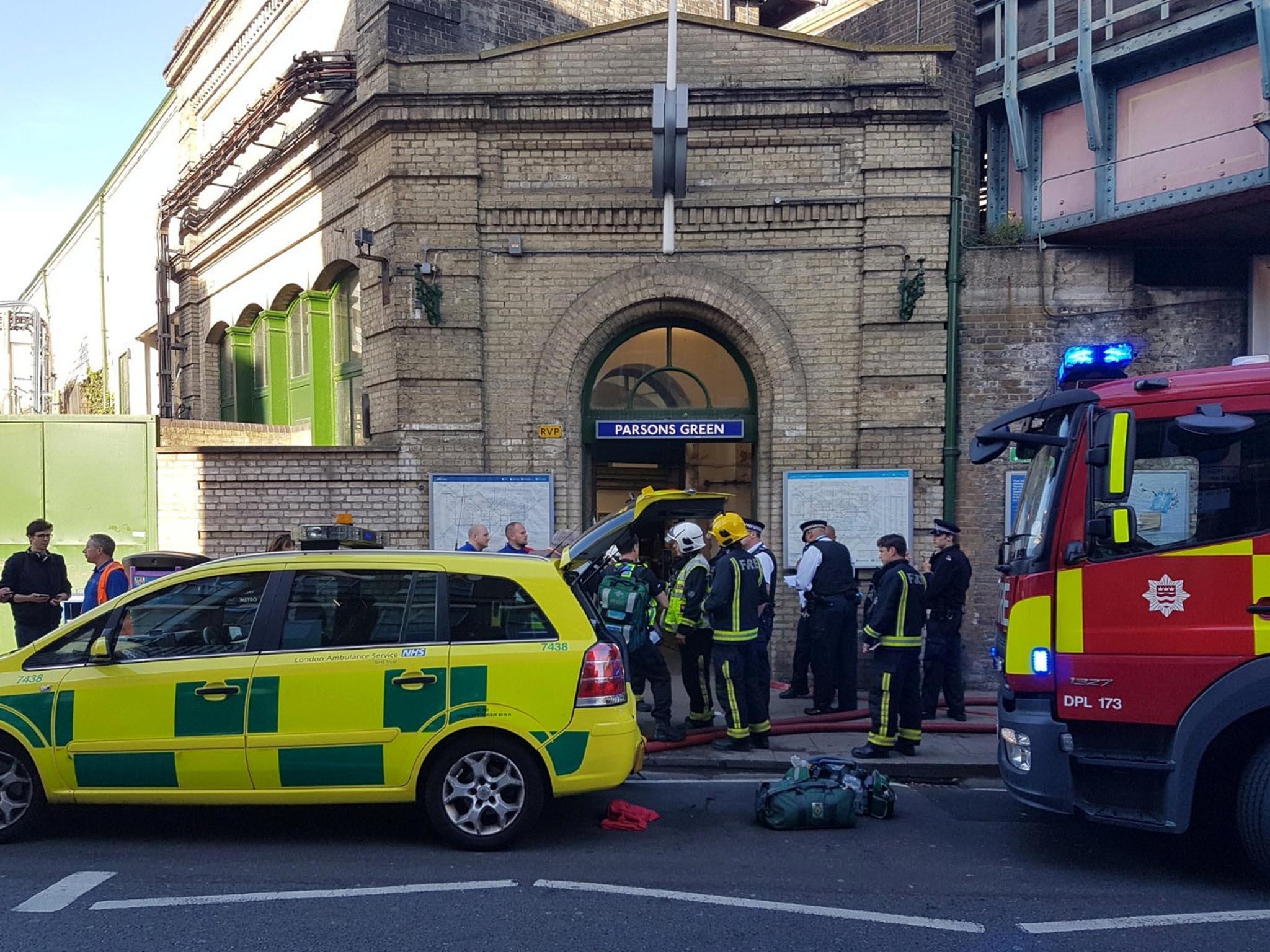Our dull and competitive morning commute will not be changed by the Parsons Green attack
Attacks on public transport cause great anxiety – but they also highlight the futility of the terrorist's cause


It is rare that a terrorist incident is followed by a sigh of relief. Yet after this morning’s explosion on a Tube train at Parsons Green, the first reaction after initial shock was the release of tension that comes with learning there had been no fatalities.
Nevertheless, in a year when the UK has been on the receiving end of several, significant terrorist acts, the attack today is a further reminder that determined people will find ways to cause fear and destruction and cannot always be stopped by the authorities from carrying out their plans.
The fact that today’s incident occurred on London’s underground network naturally brings back memories of the coordinated suicide bombings of 2005, when explosions on three Tube trains and a bus left four terrorists and 52 members of the public dead and the capital in a state of shock.
Unusually on that day I had travelled into work via Kings Cross, only to find the underground closed for reasons which at that stage weren’t clear. I got a bus instead – thankfully one that went east of Russell Square. As it became apparent what was happening, Londoners were forced to face the reality that we were all potential targets of a new kind of terror threat.
Two weeks later, a second series of attempted bombings on London’s public transport failed but increased the feeling that the city was the likely objective for any Islamist extremist wishing to bring death and injury to Britain’s streets.
In the years since that summer when London was by turns fearful, stoical and ultimately restored to normality we grew to hope that we would not see terror return; that the excellence of the UK’s intelligence services would protect us from harm.
Yet throughout that period politicians and senior anti-terror police officers frequently warned that it was probably just a matter of time before another attack succeeded. Sure enough, the murder of Lee Rigby in 2013 showed how terrorists did not need sophisticated weapons to carry out deadly deeds.

This year, attacks by Islamist-inspired terrorists in Westminster and London Bridge proved that mass-casualty assaults were not something that could be confined to the past. A third incident involving a vehicle being driven into crowds occurred at Finsbury Park Mosque, while in Manchester a bomber targeted children and their parents as they left an Ariana Grande concert. 2017 has been a grim year.
And even though nobody was killed in today’s bomb attack, the return of terrorism to London’s transport network brings with it a peculiarly specific kind of anxiety, born of the simple reality that most people who work in the capital have no choice but to use its trains and buses. Any notion we might have about keeping ourselves away from potential terrorist targets, which is largely unrealistic in any case, becomes entirely moot when we realise that every Tube carriage, every double decker might be in a terrorist’s sights.
In the late summer of 2005, which of us didn’t look askance at a fellow passenger who happened to be carrying an usually large rucksack; who can honestly say they didn’t think about getting off an underground train a stop early because they had a “bad feeling” about something? I remember a friend doing everything she could to avoid taking the Tube – and when she had to through lack of alternatives she would try to travel in the last carriage, which she had irrationally decided was likely to be safer.

Attacks on concerts and on London’s bars are strikes against symbols of life in the West. By contrast, bombs on Tube trains undermine the dull but vital reality of our day-to-day existence, which is why they create disproportionate levels of fear.
Yet the corollary of our heightened anxiety is not, paradoxically, an increased likelihood that we change our behaviour en masse or for the long term – because of course that is exactly the point: we still need to catch that train, run for that bus, throw ourselves through those closing Tube doors. We have to carry on not only because it is the right thing to do in the face of terrorism, but because we need to get to work, or school, or home. We cannot decide simply to stop functioning.
And precisely because we carry on, the futility of the terrorists’ actions is unmasked to its fullest, most embarrassed extent. An individual extremist might satisfy some private, misconceived bloodlust when he causes death or injury; but with each attack – however grisly – it must become apparent to others of their ilk that the broader cause (whether extreme Islamism, white nationalism or anything else) does not advance. The bomber might get through, to echo a famous phrase of the past, but our cities do not cease moving.
While Britain remains at heart the kind of liberal, bloody-minded country it has been for as long as anyone can remember, its citizens will not be paralysed by fear. Terrorism can never win.
Join our commenting forum
Join thought-provoking conversations, follow other Independent readers and see their replies
Comments
Bookmark popover
Removed from bookmarks